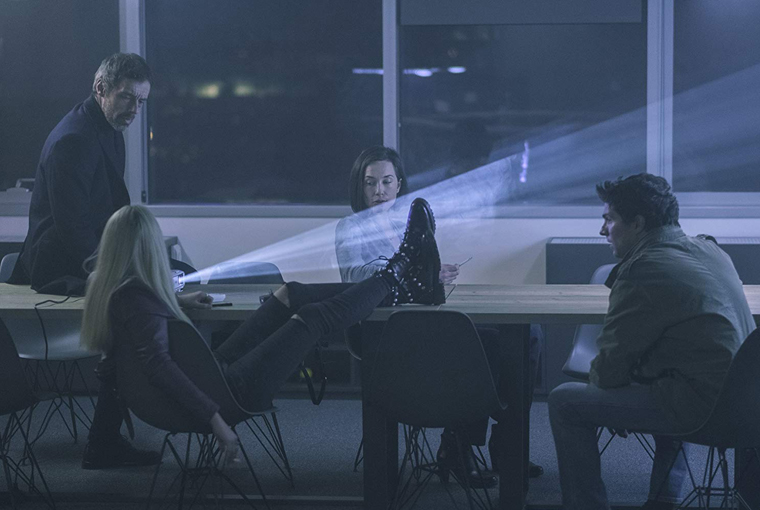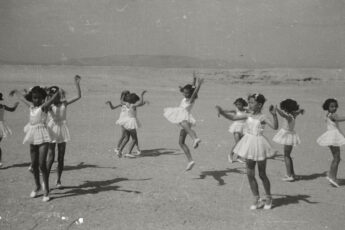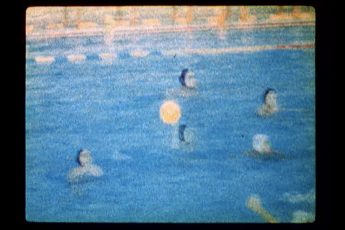From the Bottom to the Top, and All the Way Back Down Again
Marjan Alčevski’s Success (Uspjeh, 2019-)
Vol. 91 (January 2019) by Alice Heneghan
On the penultimate evening of Trieste Film Festival, the day’s program closed with a rather unusual pick. Starting at 10pm, six hours of a new HBO Europe series were rolled out to a number of dedicated attendees that had settled in for the marathon. What they witnessed was a high-end crime drama born out of a 2016 initiative to produce one series a year from its regional operations under HBO Adria (Croatia, Serbia, Bosnia and Herzegovina, Slovenia, Macedonia and Montenegro). It is quite clear that the TV group has one thing on their minds with this scheme and their message is clearly put on show in the title of its first release, Success, which was created by fresh talent Marjan Alčevski. Season One, which screened in Trieste, was directed by none other than Danis Tanović for his TV debut.
Success is a social crime-thriller that follows a group of apparent strangers in their cover up of a murder in self-defense. Wrapped up in their web of personal problems, Kiki, Blanka, Haris and Vinka end up tangled together in a web of lies woven to protect each other. Though far from perfect to begin with, their precious individual freedom is put at stake and only collective action will keep it safe.
The foundations of Success are clearly laid down in the first episode of season one, where the protagonists are closely tied with their homes, work, schools and families. The characters and their lives are portrayed separately and privately, though they are interconnected by the city they work and live in, Zagreb. Yet, a few little kinks in their otherwise isolated storylines signal the inevitable collision of their fates. One such kink is a car crash where 2 of the 4 characters should have been thrown together in defense against an impeccably dressed and anonymous bad guy. Kiki disappointingly turns a blind eye in response and so the battle between personal and societal obligation begins. From the home to the highway, Alčevski and Tanović set up the classic complex of modern city life; the closer and more numerous we become, the more we are forced to choose between ourselves and others. With a seamlessly constructed plot, the script explores the ways in which human life can exist within the inhuman structures that make up the modern city machine (a theme that is elegantly reiterated in cinematographer Erol Zubčević’s smooth, striking shots, which pan across the brutalist urban landscape).
The bold constructions of Zagreb go on to frame this violent tale of human connection and community, as well as sheltering the tumult of exploitation, individualism and prevailing solidarity it entails. If this seems contradictory, do not be fooled, Alčevski’s script is carefully deliberated and clinically executed. The episodes manage to successfully touch on a range of complex topics from corruption to gender roles, to family life and the individual’s responsibility to society. In only touching on such subjects however, the series also falls a little short. The show’s creators have clearly put some serious effort into its structure and execution, so much so that it leaves the audience hungry for deeper exploration of the existential and philosophical questions that it digs up. For example, the four protagonists are stalked in their illegal solidarity by Inspector Kalić (Marija Škaričić), whose backbone seems to be the most morally sound of the story. However, her actions and the plot’s ultimate climax are tainted by a personal interest that is accorded only a fraction of air time. Nevertheless, where one viewer may prefer more philosophical depth and exploration, others may be delighted by the steady and sure momentum that the episodes maintain, right up until a delicious action finale.
Other positives worth mentioning, are the masterful inclusion of Zagreb’s varying social classes, gender relationships and family ties. The relationship between the wild, foul-mouthed, teenage Blanka (Tara Thaller) and the more mature Vinka (Iva Mihalić), a woman tamed by her career and family, is particularly interesting to witness. Alčevski has succeeded in creating nuanced and interesting female characters whose clashing personalities seem to bring out the best in each other. Blanka’s voracious sexuality and bad behavior free a stronger and more independent Vinka, better suited to set an example for her spunky daughter Tea. Yet it is Vinka’s softer and more maternal side that stops Blanka from doing anything too irrational, as well as encouraging her to foster more self-love and respect. The friction between these two personalities could have been taken further in subverting the social stereotypes they were created to portray. Blanka is a beautiful and skimpily clad young girl whose body gets her into trouble. One instance of this the moment that she is sent home after a boy cannot be blamed for his physical violation of her personal space. Vinka is a working mum whose career goals suck the fun out of her, pushing her husband and daughter away. Sexuality is what links the two females together, yet the camera is biased towards the physical exploitation of Blanka’s character while Vinka is at most shown crying in her matching, pure-white underwear. Whilst trying to highlight the limits imposed on certain female characters, the film pushes forward the idea that Blanka’s beauty is for the taking and that well-dressed, hard-working women do not partake in such crude sexuality.
As for the men, we get a real range of masculinity portrayed where brutishness, tenderness, cowardice, honesty, boyishness, and responsibility all have their place. In equilibrium with Vinka and Blanka, Haris and Kiki develop an endearing relationship within which they both search for ways to overcome their aggression and weakness in order to properly fulfill their societal and family roles. Kiki’s character (Toni Gojanović) is directly linked to his son and the example he is setting for him. The hungry beast of small-time economics has clearly chewed him up and spat him out, so that his home and marriage are not the sources of stability that they should be. Haris (Uliks Fehmiu) the architect on the other hand, grapples with responsibility for the city as a whole. His involvement with Zagreb’s big cats, brings on a crisis of consciousness for the little people that their actions put at risk. Yet, it is in learning to care more for those close to him that this social consciousness becomes threatened.
The stories of these four characters, so clearly separated into their own spheres in the first episode, overlap, intertwine and turn each other upside down with graceful and ironic symmetry throughout the remaining five episodes. The meeting of their fates allows the show to skillfully navigate the dynamic urban landscape that is Zagreb. Whether they truly succeed in growing and maturing is debatable however, as the series’ finale leaves the viewer with a slightly unpleasant taste in their mouth. Catharsis is achieved in one way, but at the expense of justice that leaves the broken system which opened the plot, relatively unchanged. Perhaps this negative ending is a positive thing for the modern viewer though, as it asks them to grapple with the questions raised instead of passively partaking in couch voyeurism.




Leave a Comment